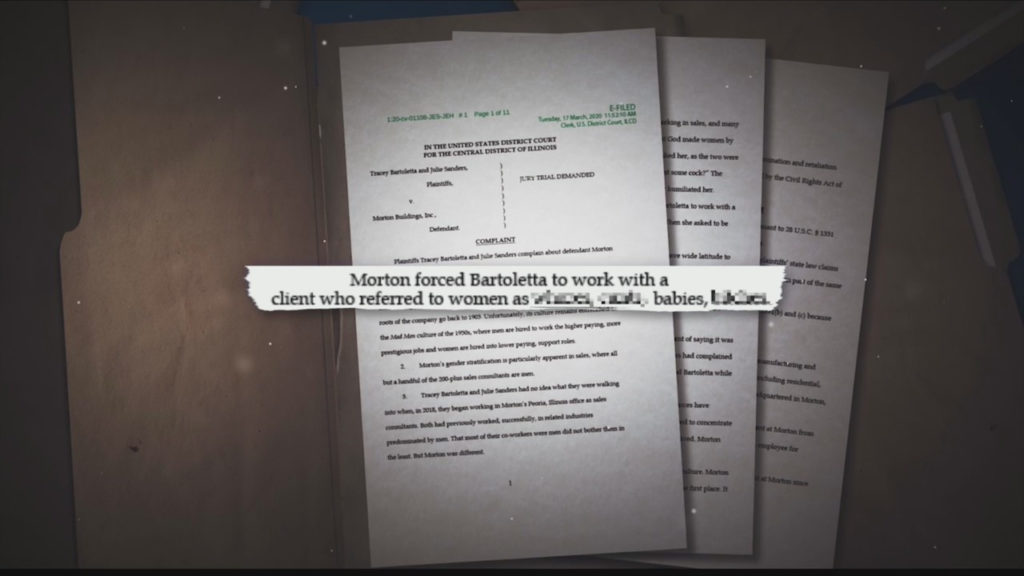Below is a review of the posts (on Facebook, LinkedIn, and Twitter) from the past week. You can check out the full posts by clicking on the links.

In the post on Sunday 6/21/20, we saw that a 7 Eleven employee’s rules that target children in community associaitonsrequest for promotion wasn’t a reasonable accommodation (per a federal court). So, what happened? Helen took medical leave and then was unable to perform the essential functions of her job. She asked to be reassigned to a position; it would have been a promotion. The employer refused. It fired her and she sued. The trial court ruled in favor of 7 Eleven; that was affirmed on appeal. The rationale is in the post – and makes perfect, logical, common sense. Note that the case was decided under CA law, but the outcome would most likely be the same under the ADA. More details on the decision are in the post.
TAKEAWAY: An employer has a duty to reasonably accommodate, but within certain limits, including not having to create a new position. Contact an employment lawyer with questions.

The post on Monday 6/22/20 was about a lawsuit that accuses company of gender discrimination, Mad Men culture. Two female employees sued, claiming harassment and torment by managers as part of a “Mad Men” culture. You probably know the tv show and its premises based on the era in which it took place. Well that era is not now, but apparently this employer doesn’t know that. Tracey alleges that she was asked to prove that she’d actually done a sales presentation, requiring that she dig through the trash. Another allegation is that clients (not even co-workers, but clients!) called the female sales reps derogatory names and the employer did nothing. A manager hit Tracey on the backside and brandished a baseball bat in the office to intimidate female employees. And there’s more, so much more, in the post. Tracey filed a complaint with HR and later took unpaid medica leave and was diagnosed with PTSD. A few months later, while on leave, she was discharged by mail. This suit isn’t the first against the employer; see the post for its history with the law.
TAKEAWAY: Treat all employees the same – and like professional adults. You will be held liable for any illegal actions.

The post on Tuesday 6/23/20 was about returning to work during a pandemic: 3 legal issues not to ignore. More and more businesses are reopening, only to find that the world has changed – and they may not be ready for it. One thing they must consider is how to accommodate high-risk employees. Yes, there may be a legal duty to do so (for the reason noted in the post). However, an employer cannot stop someone from returning to work because of an underlying medical condition (or whatever makes them high-risk) as that might be illegal under a different law (see the post). How to broach the issue with older employees is explored in the post. Other issues covered in the post include accommodations for working parents and COVID-related race discrimination, both important in every workplace.
TAKEAWAY: Know what you need to do to protect your clients/customers and employees when your business reopens; have all of your ducks in a row before the doors open wide.

The post on Wednesday 6/24/20 noted that rules that target children really target your Association (for discrimination lawsuits). We all know of condominium or homeowner associations that have rules that apply differently to children than to adult residents. So, let’s talk about them and their legality based on a recent federal case. The owner sued because tennis court rules gave adults priority over children after 3:00 pm on weekdays and all weekends and holidays. There were also pool and clubhouse rules that treated children and adults differently (as noted in the post). The suit was brought under the FHA, asserting that the rules discriminated against families with children. As to the clubhouse, the court said that the rule was discriminatory on its face and therefore violated the FHA. The trial court’s analysis and rulings relative to the pool are in the post. So what was left to go to trial? The amount of damages due to the owner.
TAKEAWAY: If your Association has rules or restrictions that treat children differently than adults, make sure they are legal – consult a community association lawyer.

The post on Thursday 6/25/20 taught us that an employer may legitimately fire an employee if it honestly believes the employee falsified allegations. Here the allegations were about sexual harassment. Lorraine was a civilian employee of the Army. She was an IT specialist. Over the last 18 months, she accused her supervisors and co-workers of various types of harassment. None of the complaints was substantiated, She was warned and then reprimanded. Lorraine then filed mor complaints against her immediate supervisor. The Army investigated. What the investigator did, and how the investigation turned out, is in the post. The report of the investigation was sent up the chain of command and Lorraine was fired. She sued, alleging the discharge was in retaliation for her complaints. What is interesting is that the Army did indeed fire her because of her complaint – but because they were unfounded. The post talks about how that shaped the issue before the court and the court’s analysis. Lorraine’s arguments are also in the post, as well as a commentary on how it falls short.
TAKEAWAY: Just as religious beliefs only need to be honestly held, but not necessarily widely recognized, in this context an employer’s belief as to the veracity of the underlying complaints can carry the day (and not be retaliatory).

The post on Friday 6/26/20 told us that the EEOC says the ADA prohibits employers from requiring antibody tests for return to work. The EEOC’s Guidance came out 6/17/20. It is clear that employers cannot test for COVID-19 without violating the ADA. This arose in the context of what type of tests employers can run to prevent the spread of COVID-19 in their workplaces. The EEOC previously noted what employers can do under the “direct threat” exception – see the post. But this Guidance makes clear that the exception is not unlimited; the explanation is in the post.
TAKEAWAY: Know what you can and cannot do when bringing employees back to the workplace. Consult an employment lawyer to keep you legal.

Finally, in the post yesterday 6/27/20, we talked about estate planning for business owners and executive (and really everyone). We are all human and we will all die some day. But we don’t know when that day will come, so we should plan now, while we can. This is especially important for business owners and executives who need to ensure continuity of a business and who may have accumulated some level of wealth. You know to whom you want to leave your assets; you need a Will to ensure that happens. And what if you can’t make decisions or need to sign something but are out of town? You need a Power of Attorney. And do you want to be on life support forever? You need a Living Will (also called an Advanced Health Care Directive). Details on what each of these documents can do for you (and your loved ones) are in the post. Maybe you already have the documents in place, but have you reviewed them recently? The law changes periodically and so do your circumstances. The post explains why periodic review is important.
TAKEAWAY: Ensure that your wishes, both during life and after death, are carried out the way you want – consult an attorney experienced in estate law and business/succession planning.

 York, Pennsylvania 17403
York, Pennsylvania 17403